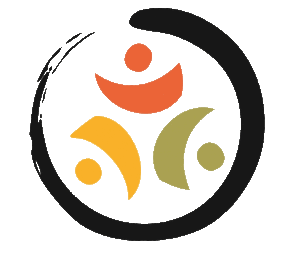Here is an article I wrote that appeared in the American Association of Acupuncture and Oriental Medicine’s online publication, Qi – Unity Report
Canadian Health Regulations Act Bill C-51 – is TCM at risk?
By Jean-Paul Thuot, RAc
Bill C-51, which received its first reading in the House of Commons in April this year, seeks to clarify terminology and grant greater enforcement powers to Health Canada regarding food, drugs and natural health products (NHPs). Or does it? Currently the debate rages on the Internet concerning just what Bill C-51 is and what it will mean for the future of NHPs, including Chinese herbal medicine (TCM).
The stated purpose of Bill C51 is:
“To protect and promote the health and safety of the public and encourage accurate and consistent product representation by prohibiting and regulating certain activities in relation to foods, therapeutic products and cosmetics.”
With recent product recalls on tainted toothpaste, bad spinach, and contaminated sandwich meats, it seems reasonable that Health Canada would seek to increase its ability to regulate, inspect, and enforce the laws that pertain to foods and drugs. Within the TCM community there have been a number of products produced in China with ingredients other than those stated on the packaging—some of which are toxic and/or pharmaceutical in nature. Thus this increase in vigilance on the part of Health Canada should come as a relief for those practicing in the field who rely on pre-compounded medicines.
Bill C-51 has been introduced to provide a legislative framework with which to regulate the various aspects of Canadians’ health management. The goal is to work within the framework to produce varying regulations for the different product categories covered in Bill C-51.
Currently, the Department cannot force companies to recall contaminated products, but instead they can negotiate recalls with the industry itself. Similarly, their limit for fines is $250,000 for a food-related offence and only $5,000 for all others. Bill C-51 seeks to increase fines for infractions as well as increase Health Canada’s abilities to monitor and enforce the legislation.
One of the changes contained in the act that has many people up in arms is the classification of NHPs as drugs. This definition is:
“Any substance or mixture of substances manufactured, sold or represented for use in:
1. the diagnosis, treatment, mitigation or prevention of a disease, disorder or abnormal physical state, or its symptoms, in human beings or animals,
2. restoring, correcting or modifying organic functions in human beings or animals, or
3. disinfection in premises in which food is manufactured, prepared or kept.”
However, the information missing from many arguments is that Health Canada clearly recognizes NHPs as being different from pharmaceuticals and therefore not subject to the same rigorous scientific studies. Indeed, TCM falls into an even more subjective classification since there is special dispensation for “traditional medicines,” defined thus:
“The sum total of knowledge, skills and practices based on the theories, beliefs and experiences indigenous to different cultures, used in the maintenance of health, as well as in the prevention, diagnosis, improvement or treatment of physical and mental illness.”
For example, here are some TCM-based traditional use claims that have been approved by Health Canada for the ingredient astragalus:
* Used in Traditional Chinese Medicine (TCM) to tonify the spleen and augment the Qi (vital energy): for spleen deficiency presenting with a lack of appetite, fatigue, and diarrhoea (PPRC 2000; Benksy and Gamble 1986).
* Used in TCM to tonify the lungs and for frequent colds (PRC 1998; Benksy and Gamble 1986).
* Used in TCM to augment the protective Qi and stabilize the exterior: for deficiency with spontaneous sweating (PPRC 2000; Benksy and Gamble 1986)
Claims of a therapy being traditional must show “a history of at least 50 consecutive years of traditional use of a medicinal ingredient within a cultural belief system or healing paradigm,” which obviously TCM is able to do quite easily. In fact, one of the proposed amendments to the bill seeks to strengthen the position of traditional NHPs:
“Obligation in respect of information in applications relating to natural health products:
1.3: In making regulations under paragraph (1)(y) relating to the information that is required in an application for a market authorization for natural health products, the Governor in Council shall specify that the information to be provided may include information based on:
1. traditional knowledge relating to the product; or
2. the history of use of the product or any of its ingredients.”
Thus, traditional medicine becomes represented not only at the regulatory level but within the legislation itself.
Another issue to keep in mind about this bill is that all forms of medicine, including TCM, are regulated provincially, not federally. In British Columbia acupuncture and Chinese medicine is governed by the CTCMA, thus it would be unlikely that Chinese herbal medicine would be banned or otherwise curtailed without huge debate not only by special interest groups but by provincial governments as well.
In conclusion, it seems that the opposition to Bill C-51 may be based in part on a misunderstanding of the language used in the bill and in part by unnecessary fear-mongering among NHP providers or their advocates.
More information can be found here:
Bill C-51
Bill C-51 FAQ
Bill C-51’s progress
Jean-Paul Thuot is a registered acupuncturist practicing in Victoria, BC.





Leave a Reply
Want to join the discussion?Feel free to contribute!